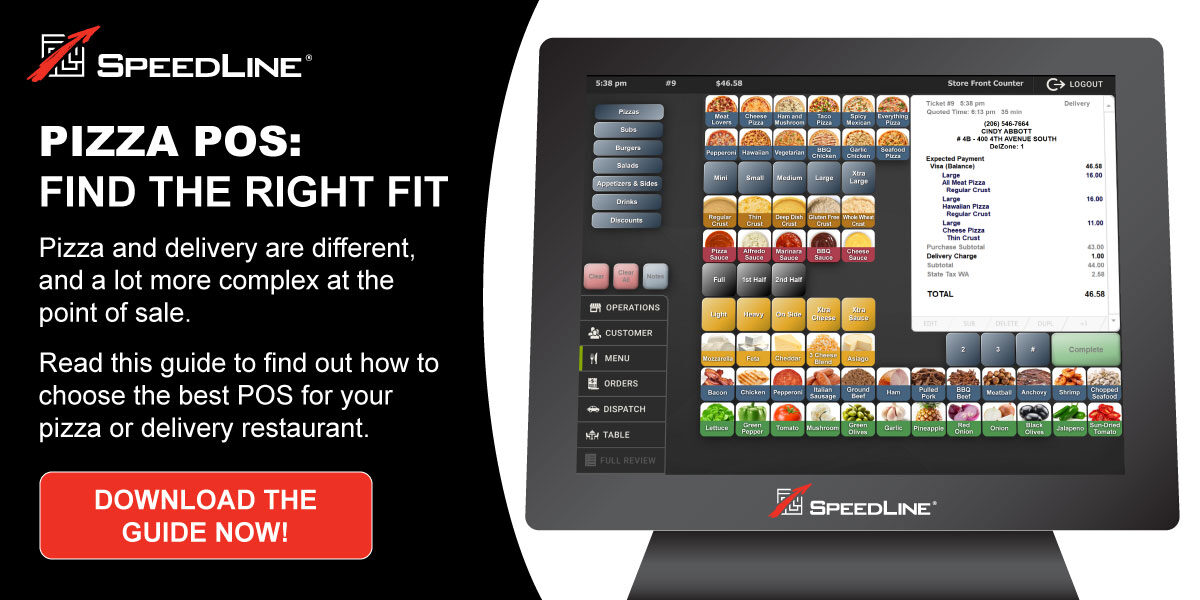Employees steal for various reasons. Most employees assume that restaurant owners have a lot of money. They convince themselves that pocketing a few dollars here or there, eating a meal without ringing it up, or taking home smallwears is a victim-less crime. Who is going to notice, right?
According to the US Chamber of Commerce, 75% of all employees will steal from their employer at least once. It’s a crime that is costing U.S. businesses $50 billion annually, according to Statistic Brain. And it doesn’t just happen to the big guys. According to a 2017 study on white-collar crime by the U.S. insurance company Hiscox, the majority of embezzlement (55%) occurs at companies with fewer than 100 employees. That means there's a good chance an employee may be stealing from your restaurant.
Below a few tips to help deter employee theft:
Institute a workplace theft policy
Create a clearly defined policy about what is considered theft and the consequences that will be faced if the policy is violated. Be sure to outline that no monetary or asset theft will be tolerated. Your staff will make better decisions if they know that all matters, no matter how minor, will be investigated and could lead to termination.
Insist that managers are on the floor, not locked in the back office.
The more the manager is on the floor, the less likely you are to experience theft. Unsupervised employees will feel more confident that their actions will go unnoticed.
Restrict POS permissions.
Unlimited employee permissions increase the likelihood of comp, void, and promo abuse. Don’t allow employees to transfer checks, or to apply comps, promos or voids without manager assistance.
Ditch the login pin numbers.
Rather than allowing managers to login to the POS using a pin number, require an identification card to be swiped or biometric fingerprint scanner for login, so that employees can’t simply memorize the manager number and avoid asking for assistance.
Create individual account for every user.
Having employees share a handful of generic log-ins makes it nearly impossible to track user activity, which is key to identifying the source of fraud. Hold each employee responsible for their POS activity by having individual logins, rather than generic logins such as “BAR,” “TOGO,” or “CASHIER.”
Only allow discounts to be applied to open checks.
Rather than splitting the items off to comp later, establish a policy of applying comps, promos and voids while the check is still open. Don’t allow employees to save all of their comps, voids and promos until the end of the night, when there is no longer a way for them to prove that Table 31 sent back their chicken salad.
Mandate that all orders go through the POS.
Have a floor manager spot-check tables and the bar throughout the shift, to ensure that all self-service items are rung in before going out to tables. Similarly, never allow items to leave the bar or kitchen without the item being rung in through the POS.
Study your POS data.
When looking at your reports, take note of employees who consistently have higher than average cash sales, comps/voids, promos, and even overtime. Most POS systems allow you to set thresholds to what you consider “normal” activity for your restaurant and then alert you when those thresholds are crossed.
Install security cameras.
Placing security cameras by cash drawers is an easy way to deter employees from stealing cash. Placing them by the back door also makes it harder for employees to remove food from the building without being detected. Cameras with motion sensors are extremely helpful because it cuts down on the amount of footage you have to review in order to determine if any unusual activity has occurred.
Watch for time thieves.
A common tactic of time theft is for an employee to leave their shift without clocking out and have a coworker clock them out at a later time. Be sure to set up the enforcement tool within your POS system to not let employees clock in or out beyond a predetermined amount of time before or after their shift without manager approval.
Create a safe way for employees to report fraud of a co-worker.
Employees may observe their coworkers engaging in theft but are afraid to report it. Even worse, if they see no actions being taken by management, they may follow suit. Creating a safe and confidential way for employees to report theft by a co-worker can deter the behavior and alert you to whom needs to be observed more carefully. Although you may not be able to prevent employee theft altogether, you can drastically reduce its occurrence.
Gather solid proof before taking action.
You will need to be sure that something is really going on before accusing an employee of theft. Without accurate accounts of suspicious behavior logged over time, certain events and behaviors could be explained away. With the possibilities of potential civil action, you will need hard proof before reprimanding an employee.
Interested in learning more about how you can stop and prevent employee theft? Read 6 Ways to Prevent Employee Theft in the Restaurant
Posted on Wed, Sep 25, 2019 @ 07:09 AM.
Updated on June 13, 2023 @ 9:27 PM PST.


